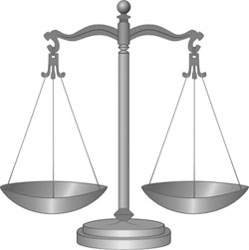
New Copyright Laws Proposed in Canada
The Canadian government tabled a bill Wednesday aimed at updating the country’s copyright legislation.
For years now, we’ve have been waiting for new laws that reflect the growth of Web 2.0, social media, and new digital devices like MP3 players, e-book readers and portable storage devices, as well as software apps for the creation or use of copyrighted material.
Delayed by criticism, consultation and the proroguing of Parliament, proposed new and revised existing copyright laws are now in play, but must still be passed by vote.
It affects any number of our daily tech activities, and our use of digital material of all sorts, including music, movies, cell phones and video games.
Consumers, families, students, artists, teachers, broadcasters, Internet providers, copyright owners and content creators alike use technology impacted and affected by the legislation.
Now, I’m not a lawyer, nor do I play one on TV, but under the proposed new law, it looks like:
It’s still illegal to download copyrighted music without paying.
Breaking digital locks is illegal. You can’t, for example, get a DVD bought in Europe to work in Canada, using some special software. You cannot create, import or sell devices or software that breaks digital locks. Penalties range from $100 to $5,000.
Enabling copyright infringement is illegal: Internet Service Providers, for example, cannot enable or allow illegal downloading. ISPs, like Rogers or Bell, will be required to send notification to the user, and keep a record for possible court cases.
Having more than one backup copy of a song or movie is illegal: Back-ups of legal purchased music of movies is OK, but you can’t have more than one copy. It could therefore be illegal to copy a series of songs onto a USB key and share them with a friend. The possible penalty is $100 to $5,000.
It’s OK to recording TV shows or podcasts. Time-shifting, or recording content for later viewing, will be allowed, using a PVR or similar device.
Like time shifting, format shifting is OK, You can copy a song from your hard drive to an MP3 player, for example – but just one copy. You’re allowed to transfer a legally downloaded song onto a portable listening device (but making back-up copies is illegal.)
Creators are allowed to take existing copyrighted material, edit it, and create new material, like a musical mash-up of YouTube video compilation made from different movies. This is not much different from fair use laws that currently exist, but the new rules say the creation should be for non-commercial purposes. The creation should it harm the reputation of the original artist, similar to current libel and slander legislation.
Unlike the tough digital lock laws, unlocking cell phones is OK (as long as the user honours their existing contract).
The government says its legislation will bring Canada in line with international standards, although they are often seen to be more harsh and restrictive in matters of copyright and creativity.
There is a government website with more information, at https://www.balancedcopyright.gc.ca/.
So, WhatsYourTech? And how do you feel about the way the new legislation may affect your use of it?



